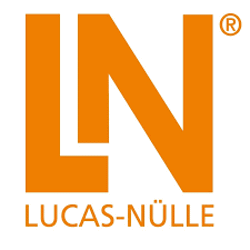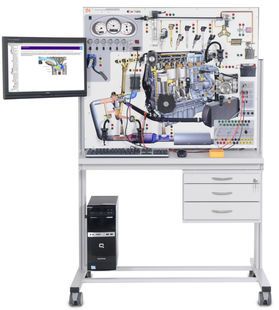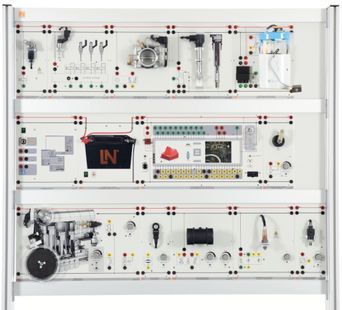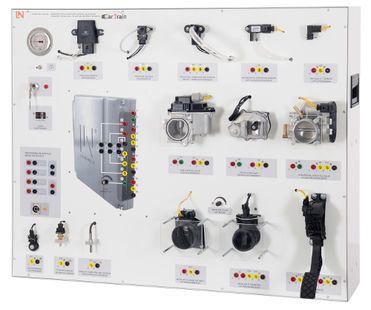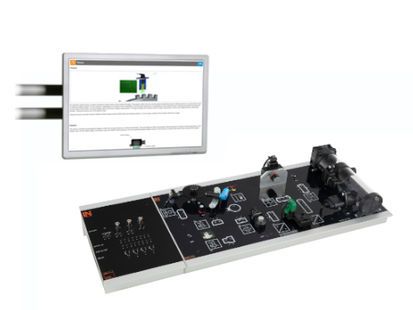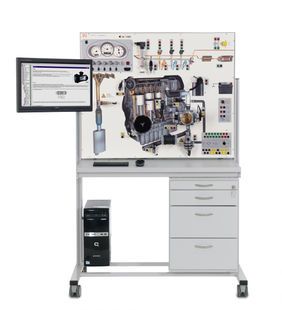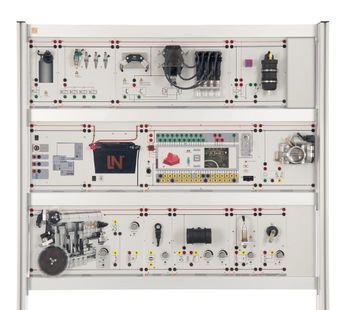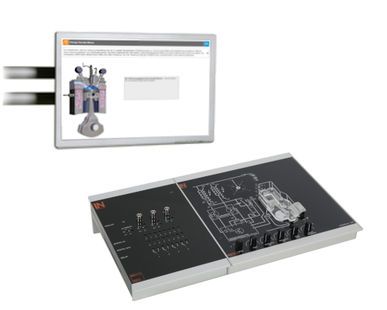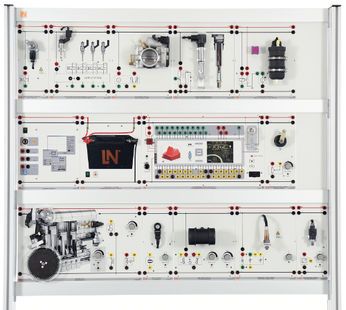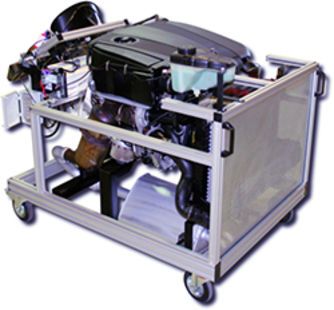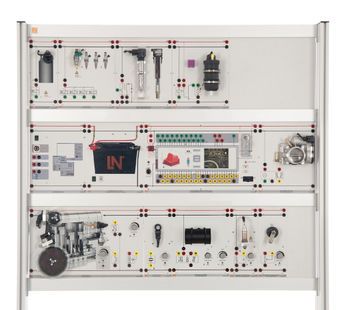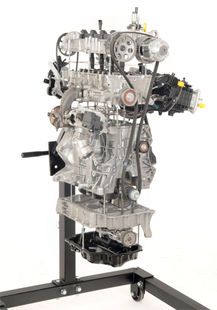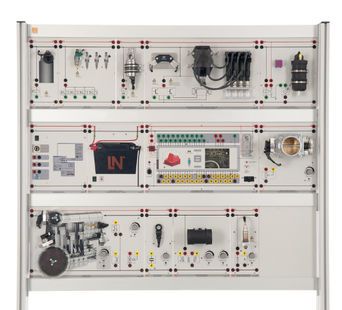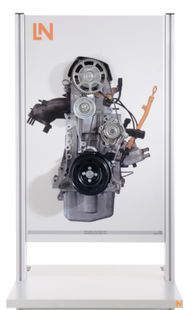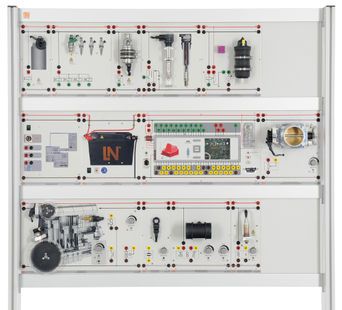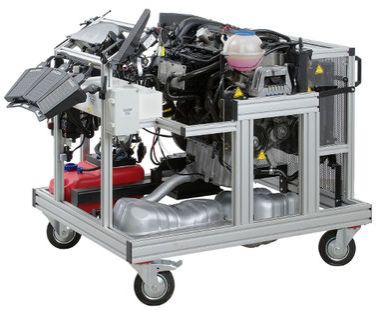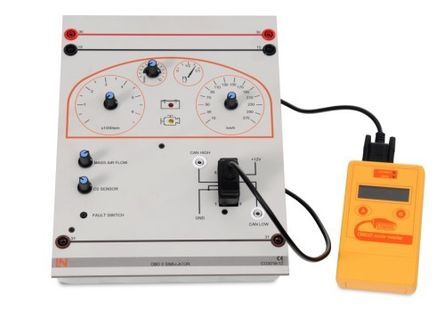Petrol engine trainers
The success of the internal combustion engine dates from 1876, when Nikolaus August Otto was looking for a powerful engine which had potential for further development. The engine he devised was to become the basis for a whole raft of developments continuing until the present day.
Thanks to its tremendous potential, the four-stroke engine mobilised industry as a whole, leading to huge amounts of competition, which the development of the internal combustion engine continues to drive till this day. The result was the most powerful types of engine in existence. Much time has been invested, particularly with regards to air-fuel mix and ignition.
The early mechanical systems developments have now led to the directly injected high-performance engines of today with their electronic ignition and electronic control of fuel mix.
Sensors and actuators
CO4204-7F UniTrain course: Sensors in motor vehicles
CarTrain "Sensors, open- and closed-loop control systems"
Ignition systems
CO4204-7C UniTrain course: Pulse generation and ignition systems in vehicles
Engine management
Modular engine management "GDI with demand regulated fuel pump"
Modular engine management "Gasoline direct injection"
Modular engine management "Motronic 2.8.1"
Modular engine management "Motronic 2.8.2"
Modular engine management "Motronic ME 1.0.1"
Modular engine management "Motronic ME 1.0.2"
CarTrain "Motronic 2.8"
CarTrain "Direct fuel injection"
CO3221-9D Changing timing belts in overhead camshaft engines
OBD trainer
CO3216-1Z OBD II simulator with CAN interface and scan tool
Test engine trainer
SO3240-1H Direct fuel injection engine test stand
SO3240-1K Multi point injection engine test stand
Engine model in exploded view
SO3240-1M GDI-Engine with TC in exploded view

